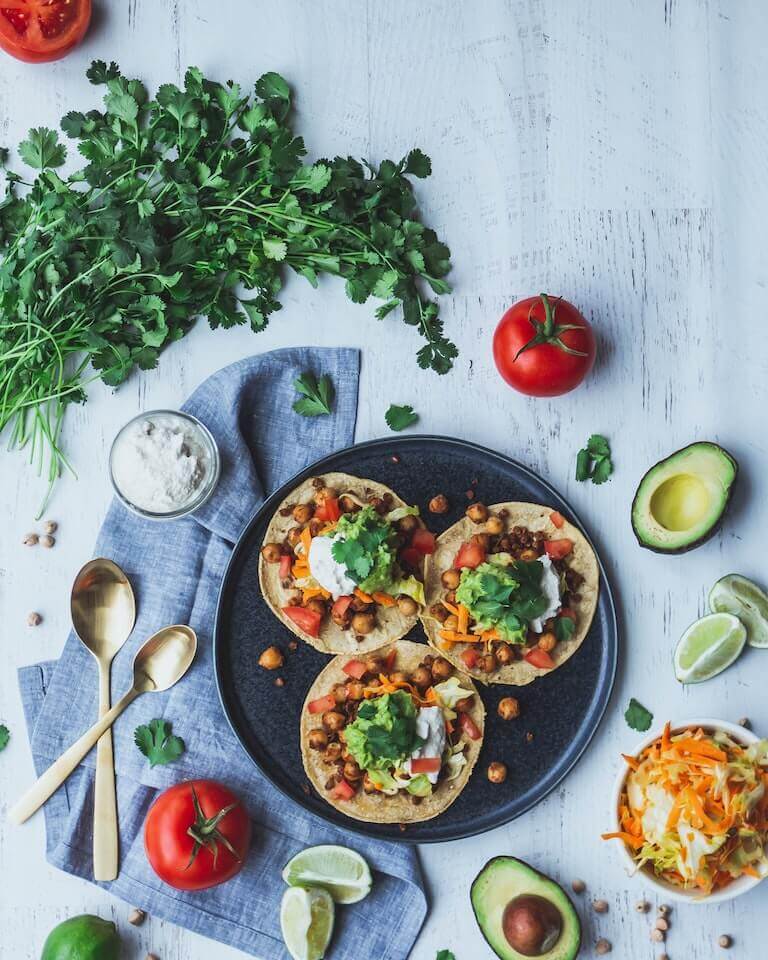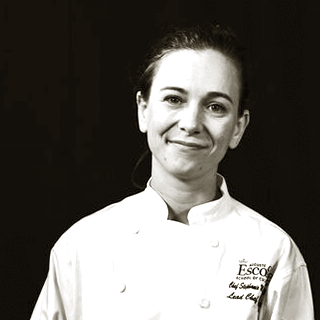Listen to This Article:
All the buzz about plant-based diets may have left you with some questions:
Is a plant-based lifestyle really healthier? Does plant-based meat taste like real meat? How is plant-based meat actually made?
Believe it or not, plant-based meats are made with a variety of common ingredients — some of which can taste nearly indistinguishable from real meat. Let’s unpack just how plant-based meat products are made and whether they’re a healthier option overall.
How Is Plant-Based Meat Processed?
Plant-based meat is just what it sounds like, a substitute for animal-based meat that uses no animal products and is primarily made of vegetables, grains, and legumes. Beyond Burger, the self-proclaimed “first plant-based burger designed to look, cook and taste like animal meat and sold in the meat case,” created a recipe with peas, mung beans, and brown rice — known as a “complete protein” as it contains all nine essential amino acids. Impossible Burgers, another brand that launched its burger product in 2016, are designed to taste like regular beef patties — and actually “bleed” due to the ingredient soy leghemoglobin. Other meat-mimicking ingredients include tofu, tempeh, and seitan.
While each type and brand varies in its precise process, there are a few facets that plant-based meat companies focus on when manufacturing their products.
Ingredients
Products that are labeled “plant-based” generally don’t include animal products — although this isn’t necessarily guaranteed. A plant-based meat manufacturer’s first job is to gather ingredients that will both meet this criteria and mix well together. The foundational elements in plant-based meat are a protein of some sort (like tofu, tempeh, or soy), plant oils (like sunflower or canola oil), and a vegan binding agent (like flour, aquafaba, or beans).
Consistency
Plant-based meats seek to mimic animal-based meat, and that includes texture. When companies source their ingredients and test their recipes, they’re focused on what will most optimally form into the desired end product — whether that’s meant to be crispy coconut bacon strips, stringy jackfruit pulled pork, or juicy red beet patties.
The process of crafting some of these products involves machines like slicers and spiralizers, as well as extrusion technology, which exposes the plant-based proteins to thermal and mechanical stresses to render them more “raw.” An extruder feeds ingredients through a stationary barrel and a revolving screw mechanism, either with or without heat, to knead and ultimately compress the product. Other manufacturers use wet texturization technology (which involves adding significant amounts of moisture during the extrusion process) plus starches and fibers that create a stringy, sinewy texture.

Flavor
Of course, a plant-based food product will only sell if it tastes as good as — or better than — the real thing. Thus, plant-based meat manufacturers are always looking for ways to enhance base ingredients, like vegetables and legumes, with flavor. This often means the use of copious seasonings and spices, yeast extracts, enhancers like nut-based sauces and mushrooms, and coconut oil. Due to various ingredients and processes used, some brands of plant-based meat have actually accomplished the flavor of real meat… while others taste similar but not quite like the real thing.
Appearance
One of the goals that recipe researchers have is to find ways of making processed plant-based meat actually look like real meat. A method that manufacturers have recently begun to use is extrudable fat technology. This process involves forcing soft fats through a machine called an extruder, which changes its texture. The fat is then added to the plant-based protein so that there’s no separation. This has various effects, like marbling, which mimics animal meat.
Are Plant-Based Meats Healthier Than Animal Products?
So now that you know more about what goes into the process of making plant-based meat, the question remains: are these products healthier?

Black bean burger made by Escoffier Online Culinary Arts student Michael T.
Generally speaking, yes, plant-based options tend to have a higher nutritional value due to the number of vegetables and other plant proteins within them. They typically don’t have as much saturated fat as real meat, and they’re often — but not always — lower in calories. They may also contain more dietary fiber.
Some plant-based meats even have more protein per serving than regular meat, which can help people reach their recommended serving of protein per day and stay fuller longer. But they may lack essential amino acids found in “complete” animal proteins. So, it’s a good practice to look for plant-based products that use “complete” plant proteins, like soybeans or quinoa. Additionally, it can be helpful to consume a diverse, nutrient-dense diet in general.
However, remember that some commercially available plant-based meats are, after all, highly processed to help with preservation of flavor or prevent perishing. So for those looking to stick to a paleo diet or incorporate whole foods, processed plant-based meats aren’t necessarily the “purest” option. Also, be on the lookout for additives — all those ingredients added to enhance taste, like salt, sugar, refined coconut oil, and more. This can tip plant-based meats into the high or very high categories in terms of sodium or fat content.
Honing Your Plant-Based Culinary Techniques
Whether you yourself practice a plant-based lifestyle or you’re interested in serving plant-based foods to others, it’s important to know how the increasingly popular plant-based meat products are made. And learning the science behind plant-based cooking and the different nutritional profiles of plant-based products is crucial for a career in this industry niche.
If you want to learn how to prepare plant-based meat dishes for a professional setting, like a vegan restaurant or as a recipe researcher, you may need specialized training. Auguste Escoffier School of Culinary Arts offers Plant-Based Culinary Arts Diplomas and Associate Degrees, either online or on-campus in Boulder, Colorado. Check out the program and get your start on a plant-based career today!



